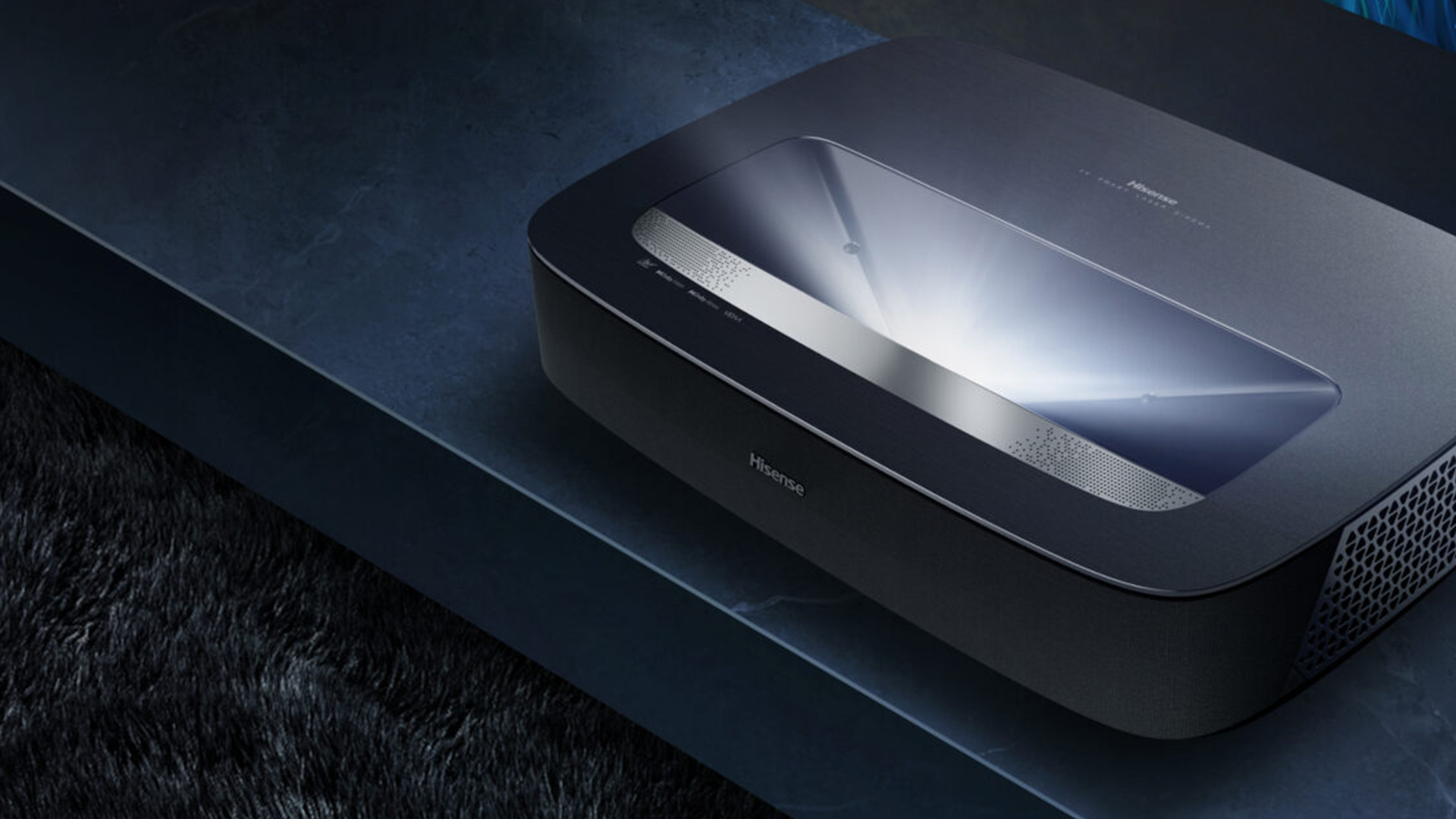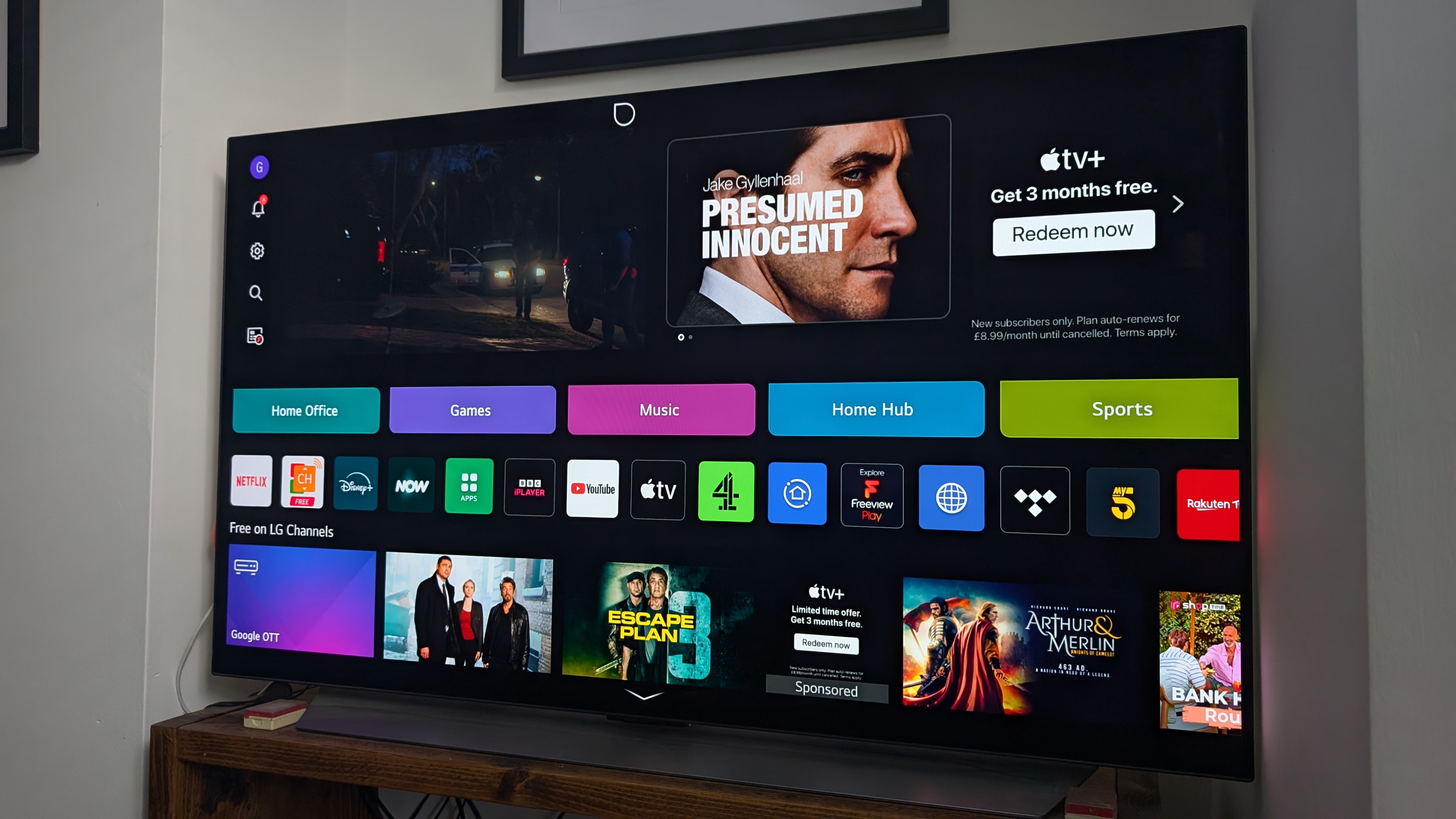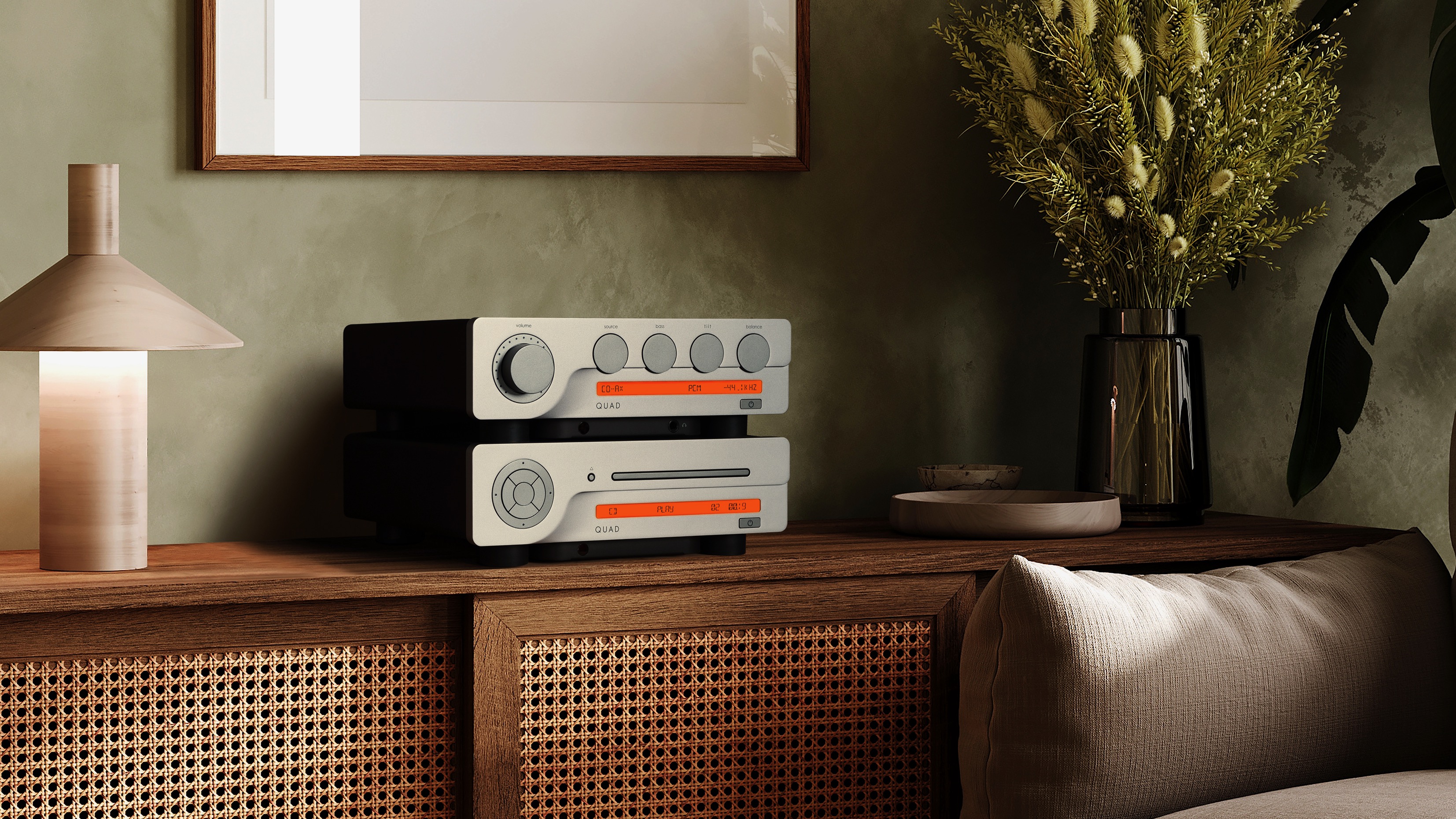I spent 48 hours looking at some of 2024's top UST projectors – and my ageing OLED TV is safe (for now)
UST projectors have come a long way, and serve a definite purpose, but I have one bugbear

The What Hi-Fi? Awards 2024’s first set of winners are going to be announced in mere weeks. Which means our team of experts are currently bunkered in our dedicated viewing and listening rooms checking an army of hi-fi and home cinema hardware at a near frenzied pace to make sure we’ve picked the best of the best.
Always keen to do my part, this week I helped by personally spending hours upon hours in one of our viewing rooms going through this year’s batch of ultra short throw (UST) projectors with the rest of the home cinema reviews team. I don’t want to give away any spoilers on the exact models (of which there were many) but I can confirm they included last year’s Product of the Year Award-winner, the Hisense PL1 – which remains a benchmark we continue to use for comparative testing for UST projectors in general.
The experience was mostly fun as once again we saw another great year where numerous companies have evolved, tweaked and generally improved the performance of UST projectors as a category. In the early days, most of the UST projectors I saw suffered from key issues, including poor contrast and a general lack of finesse with the way they displayed colours. Which was a shame as I know plenty of people who love the idea of them and I understand why the form-factor is so appealing.
After all, loads of us love the idea of getting a big screen home cinema experience, without the faff of having to have an 80-, or even 100-inch TV permanently taking up our entire lounge. Or, equally don’t fancy the faff of having to permanently install a long throw projector in our ceiling. Having a convenient box you can discreetly plonk next to your intended viewing area, that doesn’t take up loads of space and can deliver a big screen home cinema experience as needed, is in theory awesome.
And this year I can confirm that many USTs, including the PL1, deliver just that. Many of the units we tested delivered a wonderfully immersive picture, where at times I was entirely enthralled and no obvious weakness was distracting me, save one – black level.
This is a key weakness UST projectors haven’t quite overcome. On every unit we saw, while some are better than others, I couldn’t help but focus on quite how much weaker the black level was than the LG C2 OLED I have at home, and the multitude of newer sets with the panel tech to have passed through our test rooms recently.

Being fair, this is largely inherent in the way projectors make images. Unlike OLEDs, which create images by charging individual pixels on a panel, letting them create perfect blacks, projectors – USTs included – create their image by projecting light onto a surface.
The latest hi-fi, home cinema and tech news, reviews, buying advice and deals, direct to your inbox.
But, as we watched dim test discs, including The Batman, Blade Runner 2049 and Oppenheimer over and over again I couldn’t help but think this is one key area with plenty of room for improvement as manufacturers have stuck to one of two extremes.
The first, and bigger evil in my mind, is an approach where they try and artificially boost the black level by cranking the contrast to extreme levels. This means blacks look punchy, but you lose swathes of detail and entire sections of the picture just show up as black. This made segments of The Batman in particular look like they were happening in pitch black, with no part of the hero's armour or face showing up as intended during certain scenes.
The second, and slightly better approach, is that they accept the weakness and work to ensure detail is not lost. The problem here, which is the same we’ve had with recent Mini LED TVs we’ve tested including the Samsung QN95D, is that the blacks have a distinctly grey tone. This makes the picture look a little washed out and less punchy than I’d like. So again, not an ideal solution.
I’m yet to see any UST that fully overcomes this issue. Considering my love of horror and crime movies, which tend to be full of dark scenes, this makes the category as a whole a hard sell for me as a replacement for my ageing OLED, which continues to dominate even the best in the business in this specific metric. Which is why, for now at least, I can’t see OLED TVs being dethroned as the primary option for serious home movie watching.
MORE:
These are the best OLED TVs we’ve reviewed
We rate the best projectors
Our picks of the best 65-inch TVs

Alastair is What Hi-Fi?’s editor in chief. He has well over a decade’s experience as a journalist working in both B2C and B2B press. During this time he’s covered everything from the launch of the first Amazon Echo to government cyber security policy. Prior to joining What Hi-Fi? he served as Trusted Reviews’ editor-in-chief. Outside of tech, he has a Masters from King’s College London in Ethics and the Philosophy of Religion, is an enthusiastic, but untalented, guitar player and runs a webcomic in his spare time.
